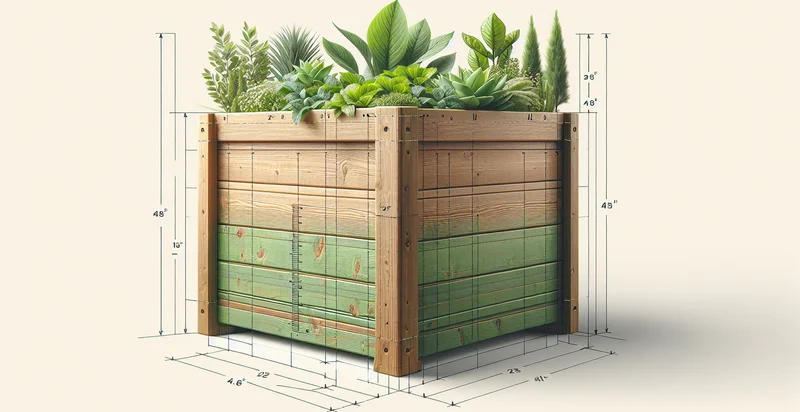Identify planter make
using AI
Below is a free classifier to identify planter make. Just upload your image, and our AI will predict what type of planter it is - in just seconds.

Contact us for API access
Or, use Nyckel to build highly-accurate custom classifiers in just minutes. No PhD required.
Get started
import nyckel
credentials = nyckel.Credentials("YOUR_CLIENT_ID", "YOUR_CLIENT_SECRET")
nyckel.invoke("planter-make", "your_image_url", credentials)
fetch('https://www.nyckel.com/v1/functions/planter-make/invoke', {
method: 'POST',
headers: {
'Authorization': 'Bearer ' + 'YOUR_BEARER_TOKEN',
'Content-Type': 'application/json',
},
body: JSON.stringify(
{"data": "your_image_url"}
)
})
.then(response => response.json())
.then(data => console.log(data));
curl -X POST \
-H "Content-Type: application/json" \
-H "Authorization: Bearer YOUR_BEARER_TOKEN" \
-d '{"data": "your_image_url"}' \
https://www.nyckel.com/v1/functions/planter-make/invoke
How this classifier works
To start, upload your image. Our AI tool will then predict what type of planter it is.
This pretrained image model uses a Nyckel-created dataset and has 22 labels, including Agco, Brillion, Case Ih, Case Ih Planter, Delong, Great Plains, Great Plains Planter, Hiniker, John Deere and John Deere Planter.
We'll also show a confidence score (the higher the number, the more confident the AI model is around what type of planter it is).
Whether you're just curious or building planter make detection into your application, we hope our classifier proves helpful.
Related Classifiers
Need to identify planter make at scale?
Get API or Zapier access to this classifier for free. It's perfect for:
- Quality Control in Manufacturing: In a manufacturing setting, the "planter make" identifier can help automate the quality control process by identifying substandard or incorrectly labeled planter products. This ensures that only items meeting quality standards reach customers, reducing returns and increasing customer satisfaction.
- Inventory Management: Retailers can utilize the "planter make" identifier to track and manage their inventory more effectively. By accurately classifying planters based on manufacturer, retailers can streamline restocking processes and make data-driven purchasing decisions.
- E-commerce Product Filtering: E-commerce platforms can enhance user experience by implementing the "planter make" identifier to filter products effectively. Customers searching for specific planter brands can obtain better search results, leading to higher sales conversions.
- Market Research and Trend Analysis: Researchers can leverage the "planter make" identifier to gather data on consumer preferences and market trends. This information can be used for strategic planning and launching marketing campaigns tailored to customer interests in specific brands.
- Fraud Detection: The "planter make" identifier can be employed to detect counterfeit or falsely labeled planter products in the market. By identifying products that do not match legitimate brands, businesses can protect their reputation and maintain consumer trust.
- Supplier Evaluation: Companies can use the "planter make" identifier to analyze supplier performance based on the quality and accuracy of their products. This can aid in making informed decisions regarding which suppliers to continue partnerships with, ensuring business growth.
- Compliance and Regulatory Reporting: Businesses can leverage the "planter make" identifier to ensure compliance with industry regulations regarding product labeling and safety standards. Proper classification can facilitate accurate reporting and reduce the risk of legal issues related to mislabeling.


